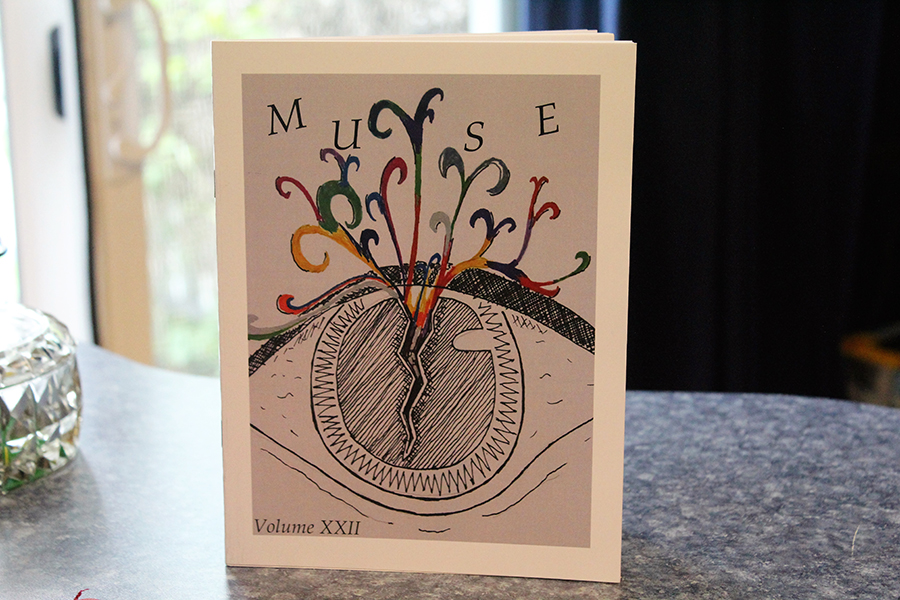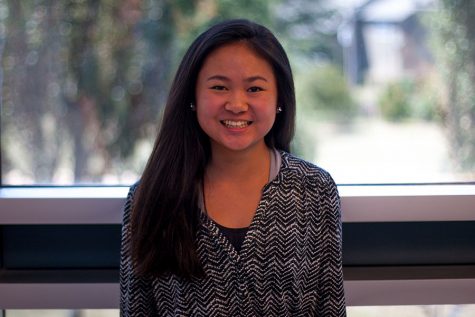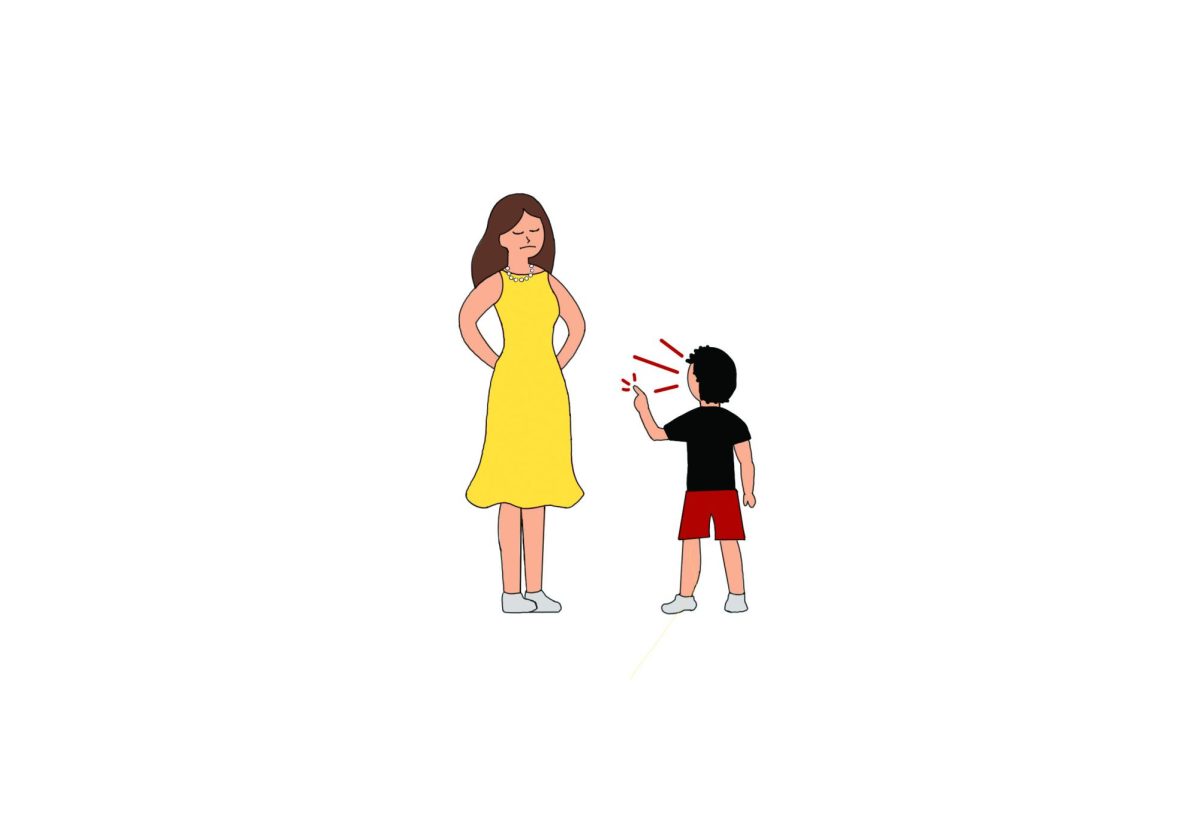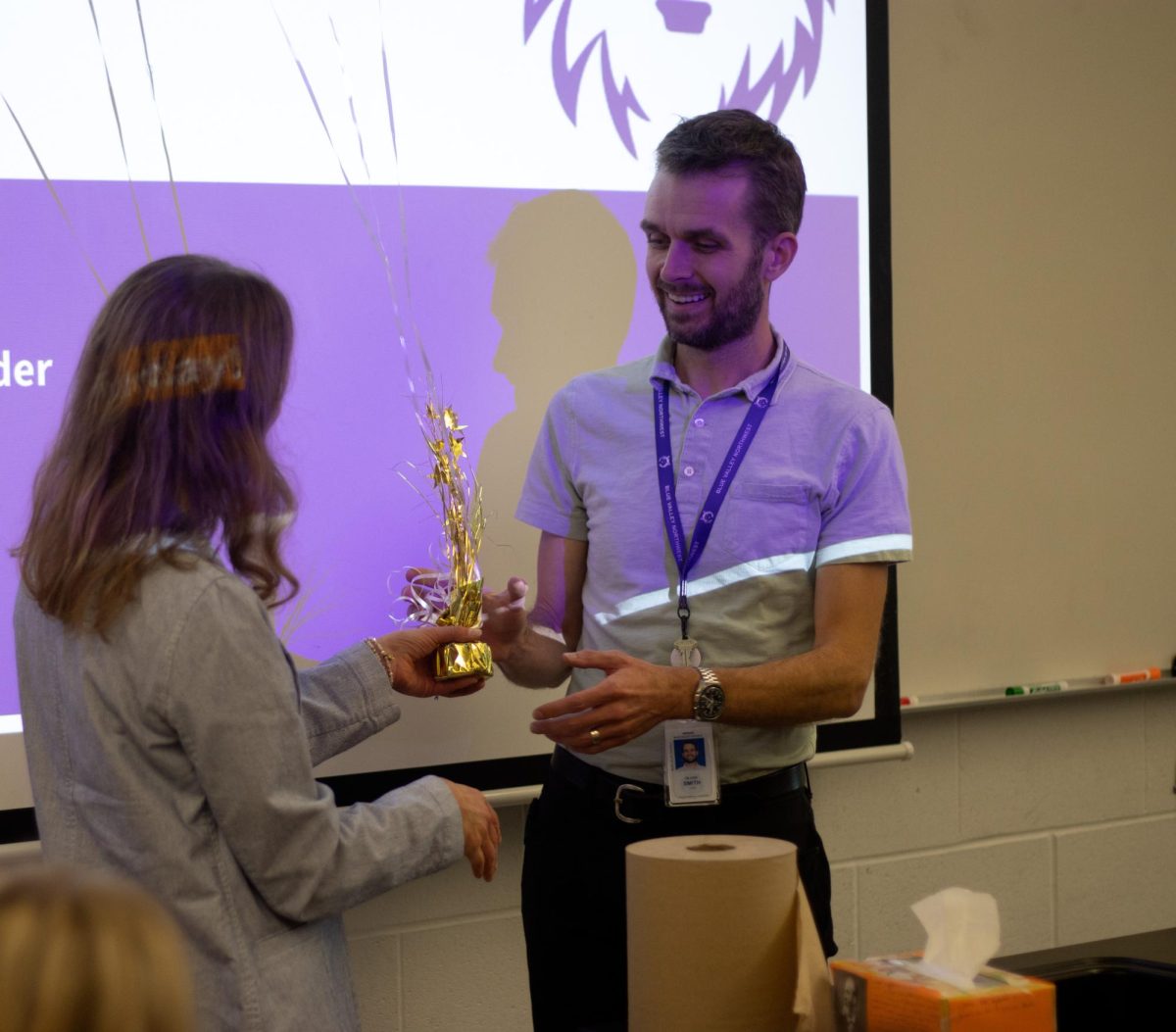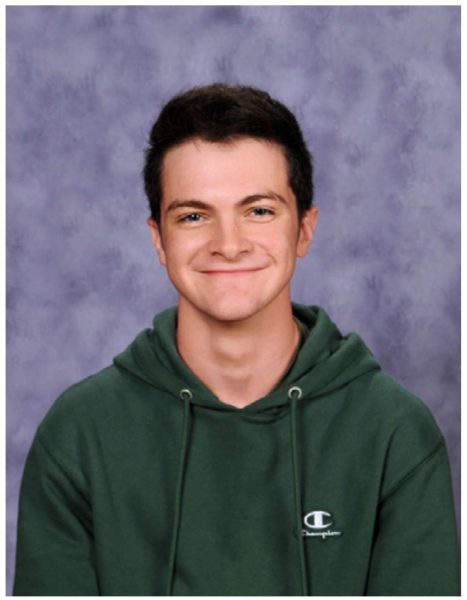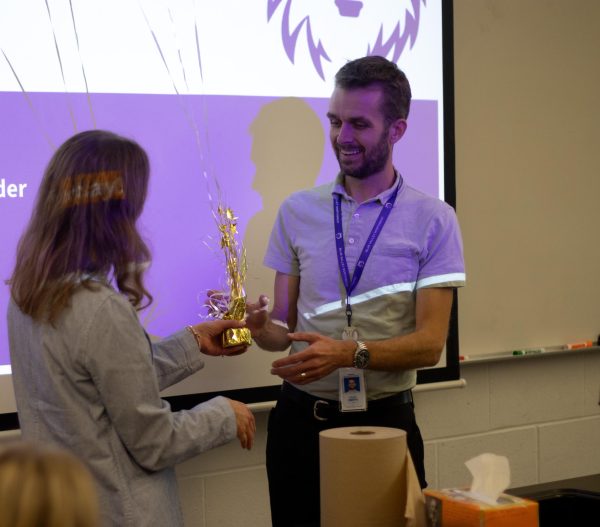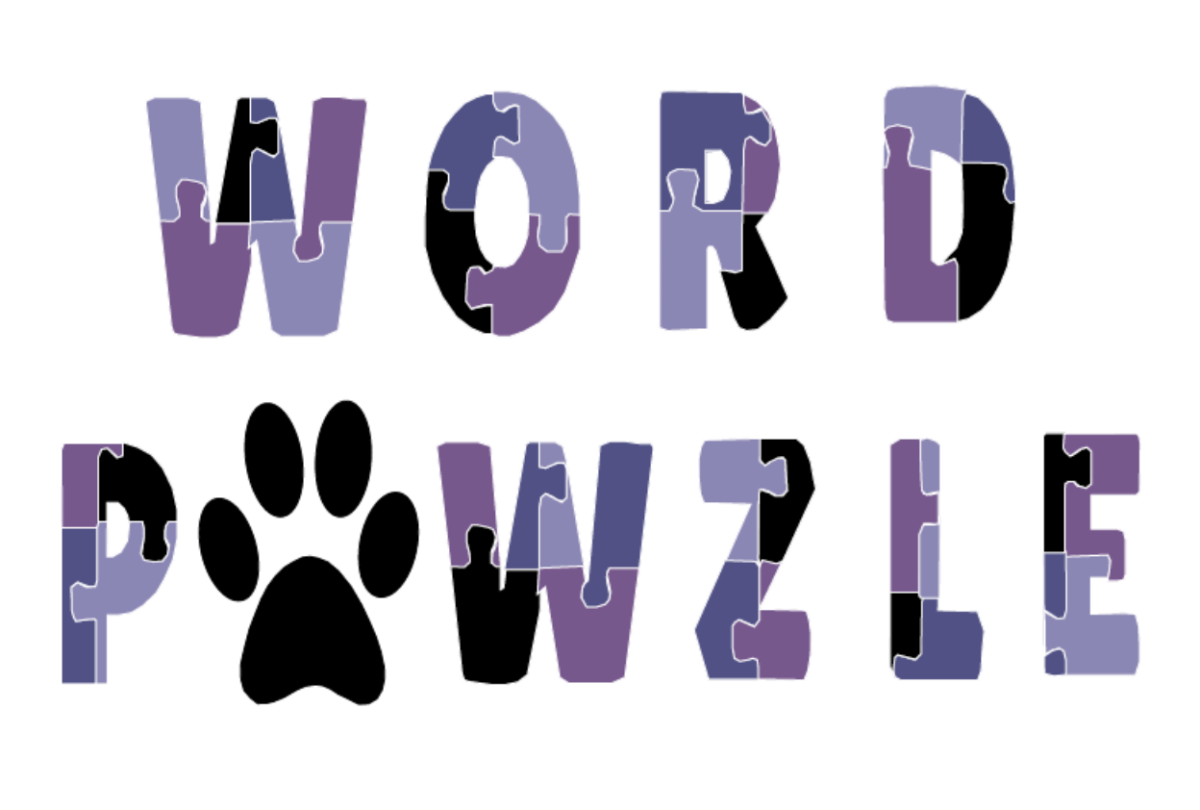Expression through poetry
In April, Blue Valley School District high schools participated in a poetry contest. Senior Carly Hassenstab won first for her poem “Only Eight Never Nine.” Planning to pursue creative writing in college, Hassenstab describes how she uses poetry to express herself.
May 2, 2017
The Academy of American Poets introduced April as National Poetry Month in 1996 as a way to increase the reach of poetry within the United States. In April, high schools in the Blue Valley School District participated in a poetry contest hosted by the Optimist Club of Kansas City. Three winners from each school read their poems at the awards ceremony at Pleasant Ridge Middle School on April 11.
English Language Arts (ELA) teacher Theodore Fabiano said the Optimist Club of Kansas City is a group of people who have a social interest in the community and annually host contests to promote the arts in some way, whether it be oratory or essay-based. Fabiano said the Optimist Club Poetry Contest has been an ongoing event, but this year was the first year he helped with its organization.
Fabiano said there were at least 120 submissions total from the five Blue Valley high schools, and one teacher from each school volunteered to participate in the reading and judging of the poems. In terms of judging criteria, Fabiano said the contest did not require participants to follow a prompt. He said the judges looked for poems that included striking language, appropriate rhythm and a clear purpose. The winners from each school were chosen by the judges not affiliated with that particular school.
“There were some poems that [the judges] talked about that were also good but may have been incomplete,” Fabiano said. “Either they were well-written and resonated with the reader but they couldn’t really sense a coherent idea or there was a clear idea but it didn’t work with the rhythm and the language.”
In addition to teaching English classes, Fabiano also teaches a creative writing course, Writer’s Workshop. He said the purpose of Writer’s Workshop is to provide a class where creative writing is the bulk of the curriculum versus ELA classes, where creative writing is only an aspect of the course. Fabiano said Writer’s Workshop focuses on poetry, especially, more than core English classes do.
“Poetry doesn’t have a very big role in an ELA class,” Fabiano. “[ELA classes] always have a curriculum that is packed, and I feel like poetry tends to get on the periphery of a curriculum. It’s not something like a common core standard.”
In the past, AP English Literature classes worked on research papers on authors, assigned to outside read books on those authors. This year, however, Fabiano said the AP English Literature classes focused more on poetry, conducting research on poets and reading poems to write their papers. He said the AP English Literature teachers, Kimberly Hillstock, Rick Pribyl and himself, decided the switch has been advantageous, as they saw a stronger connection to research within the papers than what they had seen in the past. Fabiano attributes this to the length of poems in relation to a novel.
“Student had more time to digest what they were reading and think about it and reread it, which you have to do to analyze things,” Fabiano said. “It’s hard to ask someone to do a research paper and analyze a book and have them just read through it quickly and have something to say about it with any depth, so cutting down on the reading load [was advantageous].”
Senior Carly Hassenstab said she started writing poetry during her sophomore year, when she joined Writer’s Workshop. She said that year, a piece of her work was published for the first time through Elementia, a literary magazine. For the poetry contest held this year, Hassenstab submitted five poems and one of them, entitled “Only Eight Never Nine,” won first in the contest. In addition to attending and reading her poem at the awards ceremony, Hassenstab also won a $75 check.
Hassenstab said she gained inspiration for “Only Eight Never Nine” from “Louder Than A Bomb,” a documentary on slam poetry she watched in Writer’s Workshop. After watching the film, she said the class was assigned to write a poem based on one of the poems in the documentary.
“[My poem] was based on a poem, entitled “Cody,” that a girl had written about her brother who’s autistic,” Hassenstab said. “So, I decided to write a poem based off of “Cody,” and I picked the topic of childhood cancer, writing from a mother’s perspective.”
While writing “Only Eight Never Nine,” Hassenstab said she faced the challenge of trying to convey genuine emotion when she had not personally been affected by childhood cancer. However, she said in order to get herself into the mindset of a mother whose child was dying from cancer, she researched first-hand accounts online.
Hassenstab said she wrote her favorite poem she has written after her Writer’s Workshop class talked about a book about a 10-year-old boy who was shot and killed by a fellow gang member in Chicago. Drawing inspiration from that book, Hassenstab said she wrote a piece entitled “14 and Not Afraid.” With this poem, she said she also experienced the difficulty of writing about something she had not personally experienced.
“I really tried to convey the perspective of a gang member’s point-of-view, so I’m really proud of [“14 and Not Afraid”] because it’s really different, it’s nothing that I’ve tried to write about before,” Hassenstab said. “Again, I don’t have any experience in that area, but overall, I think it turned out pretty good.”
Both “Only Eight Never Nine” and “14 and Not Afraid” appear in Volume XXII of The Muse, BVNW’s literary art magazine, of which Hassenstab is a staff member. Hassenstab said she encourages people to enter poetry contests and to submit their work online, even if they do not think their work is publishable. She said Muse published works of students whom people did not know could write poetry.
“Just share your talent with people, and even if you don’t think it’s good, it’s still one-hundred percent unique,” Hassenstab said. “There are things that you can revise and work on but anything that you write, but if it’s from you, it’s not going to be bad.”
Fabiano said people are drawn toward writing poetry because it is a unique expression of language. He said some may write poetry after reading or heard poetry that affected them emotionally, while others may turn to poetry because with poetry, writers do not need to have definite answers or conclusions, unlike with essays or novels.
“When students want to express themselves, [poetry] might just be the appropriate vehicle for expression,” Fabiano said. “If you wanted to capture an image or grapple with a particular emotion I think poetry appeals to [you] because it’s a very accessible form of communication and working through understanding your own thinking.”
Hassenstab said she continues to write poetry because she can use her imagination and personal experiences to support of a cause or to raise awareness for a certain situation. She said every piece of writing contains a general idea or message readers can take from it and that poetry will always be unique to both the reader and the writer.
“I write because it’s something that is always going to be unique,” Hassenstab said. “No matter what you write, there is nothing in the world that’s going to be word for word what you’ve written. When I’m writing, I can be one-hundred percent myself…I’m not trying to be someone else or to impress my readers. I always write for myself, first, and if someone reads it, that’s great.”


